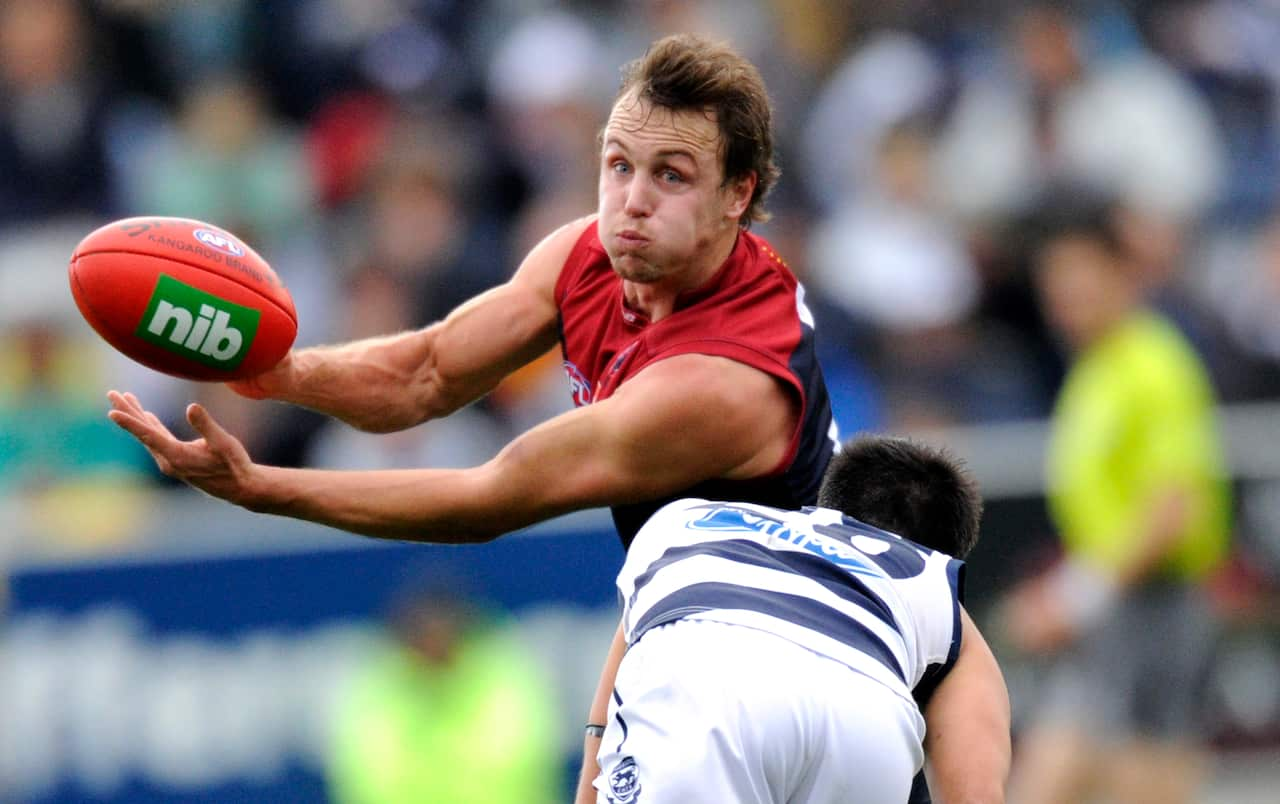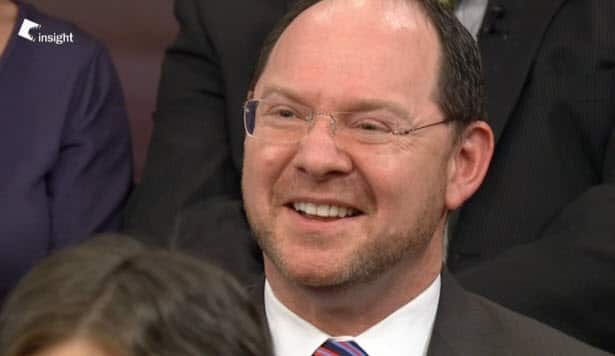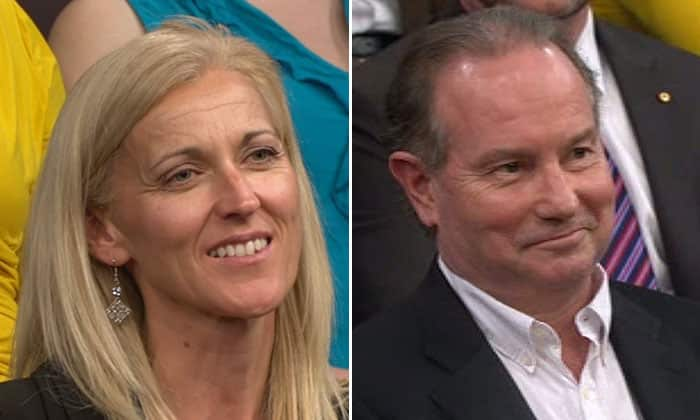- Watch SBS Insight on SBS ONE Tuesday at 8.30pm (repeat Wednesday 1pm)
- Join the conversation on Twitter using #insightsbs
- Comment: I spent $50k on stem cell treatment ... but nothing happened
After years of sharp turns on the footy field, Clint Bartram's knees were in bad shape.
"I had a lot of discomfort, a lot of swelling and just day to day not being able to actually move around," the former AFL Demons player said.
"I was pretty much bone on bone throughout my left knee, which ultimately ended my career effectively."
In a final bid to fix his damaged knee cartilage, the 26-year-old was treated with an experimental stem cell therapy.

Stem cells were harvested from fat and injected back into his knee in the hope of stimulating the growth of healthy tissue.
How did the treatment go? Mr Bartram said his knees feel better though he can't be sure it can be atrributed to the procedure.
"The biggest effect I’ve actually felt is being pain free since having the treatment, which is probably a combination of a number of things for me, being off my legs was a massive one, not having to intensely train was a massive one and to be honest I also think the stem cells played their part in making my life more comfortable," he said.
Clint is just one of a growing number of Australians having experimental stem cell therapy, including NRL players such as Sam Burgess and Anthony Tupou.
Stem cells are responsible for the regeneration and repair of damaged and ageing tissue in our body and there are many clinical trials underway looking at finding potential new treatments.
An exemption in the Therapeutic Goods Administration's regulations allows Australian doctors to treat patients with their own stem cells – regardless of whether the procedure has been proven to work.
Doctors performing these experimental therapies say the exemption allows for medical innovation and that using your own stem cells is low risk.
"Quite often we really don't know why we have got some improvement, but just because we don't know the science behind it doesn't mean to say that it doesn't work," said Dr Ralph Bright of Macquarie Stem Cells.
But other doctors are concerned it's opened the door to a range of treatments that carry a real risk.
There are concerns that some Australian clinics are charging thousands of dollars for treatments that may not be safe and haven't been proven effective through clinical trials.

John Rasko, of Cell and Molecular Therapies at Sydney's Royal Prince Alfred Hospital, say there is no solid evidence that these treatments work, and believes like all other medical therapies, they should go through proper clinical trials that test against placebo.
"The question is are they effective and the answer has been probably not ... There's no point in offering unproven therapies to people, it's going to waste their time, offer them the possibility of risk and waste money and possibly also put them at danger."
"We know that you do anything to knee and 30 percent of people tend to get a little bit better. Thiry percent of people tend to get a little bit worse and the other 30 percent remain pretty well neutral and God knows what happens to the other 10 percent. The bottom line is that we don't know what happens when we inject these cells or any different types of cells," Dr Rasko says.
Stem Cells Australia, a government research initiative, has identified over 40 local doctors who are offering treatments that haven't been rigorously tested. There's a big market for osteoarthritis, and it's showing promise for some patients.

Kerri Pottharst, professional beach volleyball player and Olympic gold medallist, had fat stem cells injected into her knees.
Ms Pottharst told Insight that 18 months ago, she was taking anti-inflammatories and "probably wouldn't have been able to walk that much" and contrasted that experience to a recent trip to the zoo, where she felt no stiffness or pain in her knees, despite walking around for nearly four hours.
Though she described the initial procedure to remove fat cells as "painful", she felt it did make a difference.
"I'm one year almost to the day now since I had the procedure and my knees are unbelievably fantastic," Ms Pottharst said.
However, Ms Pottharst's result was not shared by Dr Ross Walker who said his treatment "did nothing" and ended up costing him thousands.
"I was in such pain from the knee that I really, too young for a knee replacement but I needed something. I didn't want to be on non-steroidal anti-inflammatory drugs for the rest of my life because of the long term complications," he said.
"They took 200 grams of abdominal fat, I tried to negotiate for a little bit more, and they harvested about 70 million stem cells and injected them back in my knee."
"As a doctor I'm well aware what they can do to your body, so I thought yes, this is an experimental therapy. Yes, the evidence on the preliminary work has been reasonable and so I went ahead and had it done. Because I didn't want to be accused of cells for comment, I paid for it myself, it cost me $10,000 and it did nothing," Dr Walker said.
Whilst this particular therapy has been proven safe and is showing promise in some patients, it's yet to be proven effective in a clinical trial that tests against a placebo group.
Doctors are particularly concerned about stem cell treatments being offered in Australia for complex conditions like Multiple sclerosis, Parkinson's Disease and spinal cord injury.
"I have to say there's very little scientific evidence to say that fat stem cells would impinge on many of those illnesses," says Professor Martin Pera from the University of Melbourne.
Australians with chronic illnesses are frustrated with the lack of progress and want to leave no stone unturned.
Patients and doctors alike are hoping the Government's new $20 billion Medical Research Fund will help provide secure funding for medical research over the coming decades, and help keep Australia at the forefront of medical research.
This week’s episode of Insight at 8.30pm on SBS ONE asks whether current stem cell treatments are cause for hope – or just misleading hype. If an experimental treatment existed for your illness – would you try it? Leave your comments below.

